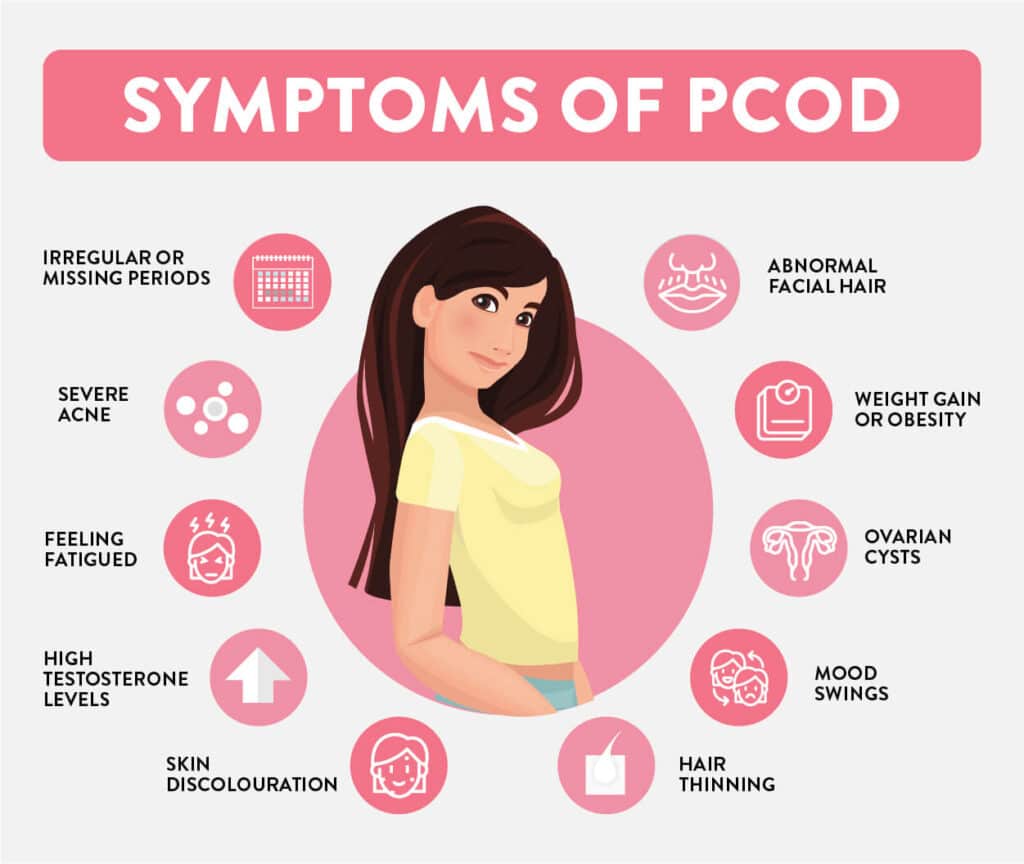PCOD (Polycystic Ovarian Disease) is an ovulatory disorder in which a woman’s ovaries fail to release eggs regularly as it develops multiple follicles, which develop into cysts in the ovaries over time. Women with PCOD and PCOS may emit more male hormones (androgens), resulting in infertility, irregular menstruation periods, hair loss, and abnormal weight gain. But patients can manage PCOD/PCOS with a few dietary and lifestyle changes.
Though the exact cause of PCOD still remains unknown, here are some possible causes.
Excess insulin production
An increase in insulin levels leads to an increase in androgen production (a male hormone) in women.
Family history
There is a possibility of getting affected with PCOD if there is a history of PCOS/PCOD in your family.
Excess androgen production
Abnormal and excessive production of androgen by the ovaries can increase hair growth and acne on the face and body.
Low-grade inflammation
Women with PCOS or PCOD have been found to have low-grade inflammation which induces polycystic ovaries to create androgens, which can cause heart and blood vessel problems.

As there isn’t any definitive process to diagnose PCOD/PCOS, there are just a few possible ways to diagnose it.
There isn’t any cure for PCOD/ PCOS. Therefore, PCOD problem treatment focuses on managing and changing the way of living.
Though PCOD and PCOS are both results of hormonal imbalance, PCOS is considered to be more severe.
A healthy lifestyle can help to reduce the effects of PCOD.
Irregular or missed periods are a sign of PCOD which can easily be detected at home.